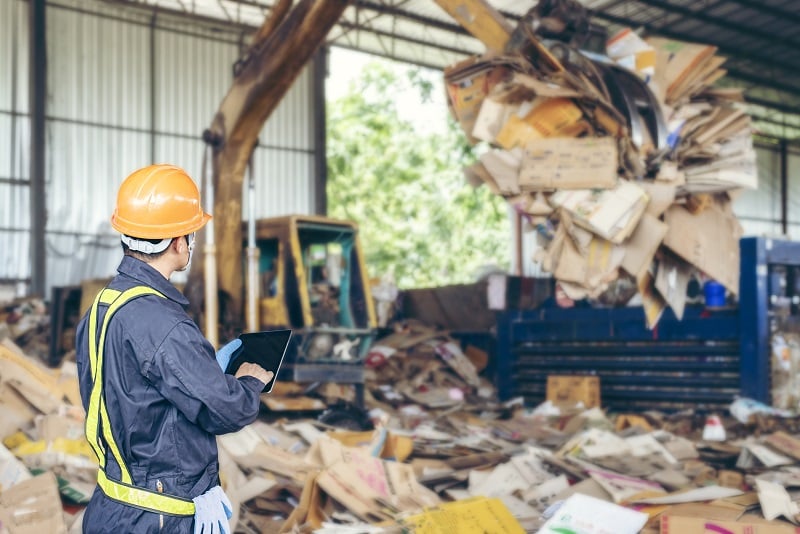 The circular economy market is growing faster than ever but at the same time the operators on the sector have been caught in a riptide. Sitra forecasts that the Finnish circular economy will have an annual growth potential of EUR 1.5-2.5 billion by the year 2030. This means that 75,000 new jobs could be created in the circular economy sector. At the peak of the megatrend, opportunities and different profiting models are being developed while the need for reporting increases as legislation becomes more strict.
The circular economy market is growing faster than ever but at the same time the operators on the sector have been caught in a riptide. Sitra forecasts that the Finnish circular economy will have an annual growth potential of EUR 1.5-2.5 billion by the year 2030. This means that 75,000 new jobs could be created in the circular economy sector. At the peak of the megatrend, opportunities and different profiting models are being developed while the need for reporting increases as legislation becomes more strict.
Stricter legislation puts pressure on circular economy
Everyone who is familiar with the business knows that the mechanisms of the circular economy help us save natural resources and reuse and recycle materials more efficiently. At this moment, the demand for a circular economy is growing and new innovations are being created.
The significance of circular economy is widely understood as the goals are quite high both in Finland and abroad. In Finland, more of both public and private investments have started to be directed to the circular economy sector. At the same time, the international legislation surrounding the sector becomes more strict which affects operators in the circular economy in Finland and in the EU. According to EU legislation, 55% of municipal waste should be recycled by 2025. Currently the recycling rate of municipal waste in Finland is around 42% (2018) and efforts in the last few years have not proven very successful in raising the recycling rate, so more efforts are needed.
A new waste act is also currently being prepared in Finland that includes stricter regulations in e.g. reporting waste management. More reporting will be required on issues such as the traceability of the origin of materials which requires businesses in the circular economy to take big leaps. In order to prepare for the requirements of stricter legislation so that the profitability of the sector remains the same during big changes, current operating models must be developed and made more efficient.
Achieving the ambitious goals for recycling materials still takes a lot of work. The efforts create new business and also encourage current operators to develop and make their operations more efficient through digitalization. It’s possible to almost fully digitalize data collection and reporting and in this way significantly cut down on the amount of manual routine work.
Manage the whole supply chain
As we know, circular economy helps us reduce the use of natural resources and decrease the environmental impacts resulting from it. At the same time, a circular economy can also strengthen our economy. In a circular economy, profitability of business improves when we stop looking at just the raw materials and take a wider look at material flows and the whole supply chain. In circular economy business it is quite typical that thousands of material flows might be coming from many sources, in and out. The growth of profitability might easily be stunted through unclear material flows and fruitless work hours spent solving them.
Digitalization supports the effortless management of material flows, data collection and reporting. The amount of manual routine work decreases and the whole process becomes faster. Technological solutions also help minimize human errors, improve agility and ensure smooth daily operations. Flow by Pinja is a material flow management system that has been designed especially for circular economy. It is a good example of a solution that makes the monitoring of profitability easier than before.
As the amount of data increases in time with technological solutions, we will also be able to utilize, interpret and analyze this data more accurately. Real-time data makes it easier to manage everyday activities with enough time left over for business development and new innovations.
Read more:
Download: Digitalization in circular economy
Check out: Flow by Pinja - Material management system for circular economy
Back to the Pinja Blog
Categories
- Career at Pinja (68)
- Manufacturing (46)
- Knowledge Management (45)
- Production Development (44)
- Software Partnership & Tools (42)
- Sustainability (37)
- Wood and Forestry (37)
- Bioenergy and Recycling (29)
- IT Support and Outsourcing (24)
- Ecommerce (23)
- Maintenance (22)
- Artificial Intelligence and Machine Learning (15)
- Public Services (9)
- Compliance (1)
